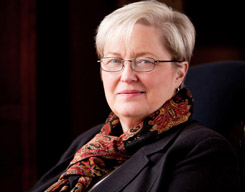by Olive Balla
 Listen. Hear that? It’s the non-sound of laptops and word processors sitting on desks and collecting dust. It’s the white noise of writers everywhere giving up, of promising writers being sucked into the black hole of Writer Fatigue.
Listen. Hear that? It’s the non-sound of laptops and word processors sitting on desks and collecting dust. It’s the white noise of writers everywhere giving up, of promising writers being sucked into the black hole of Writer Fatigue.
Webster defines fatigue as weariness or exhaustion from labor. The thesaurus offers burnout as one synonym. Fatigue. Burnout. Such innocuous words to describe the miserable state into which nearly every writer falls at some point.
I recently spoke to a woman in her sixties who has been writing since college. Throughout her school years she received kudos on her style and creativity. No one was surprised when she began to write in earnest. So, for the past twenty years she’s written romance novels. But none have been published. The woman decided to throw out all her manuscripts rather than leave them for her progeny to deal with. She wondered what happened to the promise that if one never quits writing, success will eventually come.
I don’t have a sure-fire answer for that. But I do have a couple of ideas.
Someone said the definition of “crazy” is to keep doing the same thing over and over while expecting different results. Other than wanting to be someone who has written rather than someone who writes, I believe many writers lose that loving feeling for the craft when their expectation of speedy publication isn’t met. Convinced that all they have to do is just more of what they’ve been doing—only harder—they grow jaded as time marches on and no agent picks them up. Some, blessed with a more entrepreneurial spirit and less vulnerability to the purist’s litany of reasons not to do so, finally opt to self-publish.
I’m not making light of the virtues of tenacity and determination. But getting ahead in today’s publishing world apparently takes more than that. It requires the ability to change with the times.
But (my inner Jane Austen retorts), the long-dead Agatha Christie is still selling like hot cakes. True. And so is the Bible. But until your name becomes a household word, you’re going to have to offer something that sets you apart from what every other writer is offering. To quote one agent I recently heard speak at a writers conference, “Please, do not send me even one more vampire novel.”
Which brings us back to the need for change. The Chinese even generated a book on the subject. The I Ching, or Book of Changes, is purported to have been written over five thousand years ago. Change, irony intended, is here to stay.
What’s a writer to do? Besides not throwing in the towel, one way to keep up is to embrace current publishing reality and make shifts in one’s own writing style.
Basics do still count. Never really good with grammar, syntax, or modifier placement? Go to owl.english.purdue.edu/owl for Purdue University’s free online writing lab. Audit a continuing education class in creative writing. Join a writing organization (such as SouthWest Writers) and connect with the published and as yet unpublished. Join a critique group. Subscribe to writing magazines or E-zines to remain current on what’s happening in publications. Enter contests.
And every How-To now sitting in my bookcase includes a section on the importance of making time to write. Some successful writers commit to writing a specific number of pages daily, while others suggest setting aside certain hours of each day to do nothing but write. Either choice is apparently not as important as is the consistency with which one practices it. Pick whatever fits your lifestyle, and stick with it.
And according to Stephen King, one of the most important things for writers to do is read. Read at the doctor’s office, read while waiting for a flight, read in the john. Mr. King says stuffing our heads with the works of others, besides giving insight into what’s selling, will feed our creativity and help shape our styles. Reading someone else’s work energizes our own.
Science tells us black holes are not the empty spaces they appear to be. They are so dense and their pull so powerful, even light cannot escape. Stephen Hawking says black holes slowly give off bits of radiation until they explode in a supernova of energy. They aren’t just sitting in the void, waiting for Godot. They’re working toward a goal, absorbing stray stars, planets, and cosmic trash. They’re changing, getting ready to become something else entirely. Revising themselves.
So, I’m off to Barnes & Noble, where I plan to gorge myself on anything that looks interesting. I’ve decided to embrace my Writer Fatigue and make it work for me. You’re welcome to come along. A latte, soft chair, and an endless supply of the hottest-selling reading material seem to be in order. Onward.
 Olive Balla, author of suspense novel An Arm and a Leg, is mother of 3, grandmother to 13, great-grandmother of 4, a retired educator, and part-time professional musician. Having been everything from secretary at a used car dealership, a university student, and a high school Spanish teacher, Balla states her characters are, in part, amalgamations of people she’s met. Living with her husband Victor in the Albuquerque area, she spends her spare time in a small woodworking shop designing and building everything from breadboxes and wine racks, to a porch bench. Visit her website at omballa.com.
Olive Balla, author of suspense novel An Arm and a Leg, is mother of 3, grandmother to 13, great-grandmother of 4, a retired educator, and part-time professional musician. Having been everything from secretary at a used car dealership, a university student, and a high school Spanish teacher, Balla states her characters are, in part, amalgamations of people she’s met. Living with her husband Victor in the Albuquerque area, she spends her spare time in a small woodworking shop designing and building everything from breadboxes and wine racks, to a porch bench. Visit her website at omballa.com.
This article was originally published in the July 2013 issue of SouthWest Sage and is reprinted here by permission of the author.


























Thank you, Lance, for reading the article and commenting. It’s a terrific thing to know someone got something from it. Hang in there.